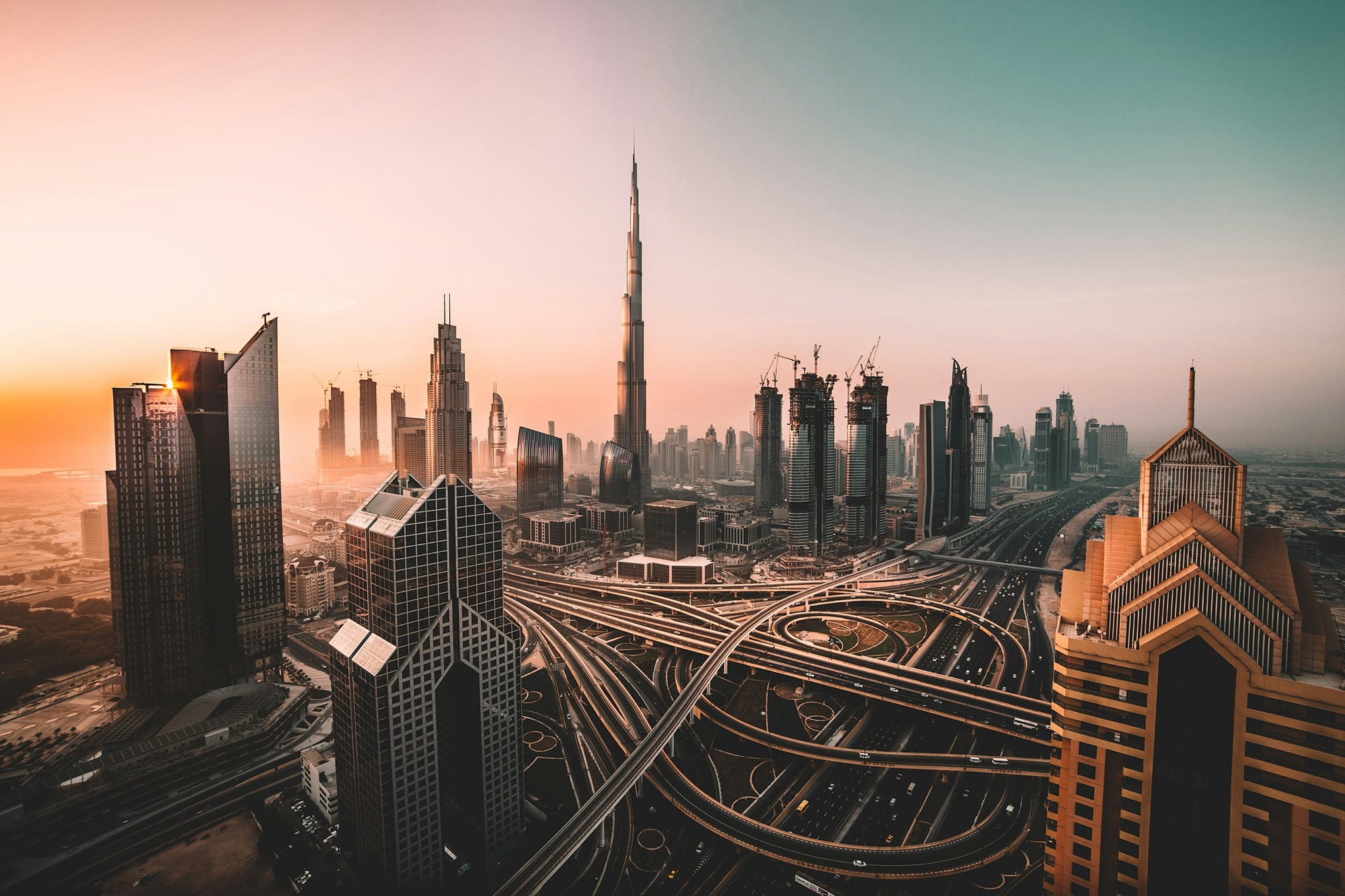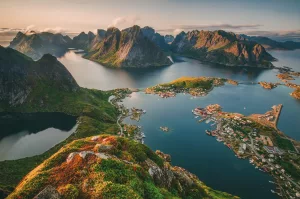Dubai has long been heralded as a beacon of prosperity, innovation, and luxury—a city where dreams are built from the desert sand and transformed into the world’s tallest skyscrapers, man-made islands, and the epitome of modern living. With its iconic Burj Khalifa, seven-star hotels, world-class shopping malls, and tax-free living, Dubai paints a picture of unparalleled extravagance and opportunity. Millions of tourists flock to this global city every year to experience its unique blend of futurism and luxury, while expatriates from around the globe are drawn by the promise of lucrative job opportunities and a high standard of living.
However, despite the glitz and glamour that Dubai projects to the world, there are growing sentiments that the city may be overrated. Beneath its shiny facade, critics argue that Dubai’s rapid development and obsession with grandeur come at a cost—one that reveals social inequalities, environmental concerns, and a superficial cultural identity. The city’s success and appeal often mask the deeper complexities of living and working in Dubai, prompting the question: Is Dubai really as great as it seems, or is it overrated?
In this article, we’ll take a deep dive into Dubai’s allure and examine the factors that contribute to the growing perception that it may not live up to its larger-than-life reputation. We’ll explore the cultural superficiality, social inequalities, environmental issues, and economic vulnerabilities that make Dubai, for all its glamour, a city that can be overrated for many.
The Glitzy Facade: What Makes Dubai So Appealing?
Before delving into why Dubai might be overrated, it’s important to understand what makes the city so globally attractive. There’s no denying that Dubai has achieved remarkable feats in a relatively short time. Once a modest fishing village, the discovery of oil in the 1960s transformed Dubai into a city of unprecedented wealth and ambition. Its leaders, particularly Sheikh Mohammed bin Rashid Al Maktoum, envisioned Dubai as a global hub for business, tourism, and luxury living, and the results are visible today.
1. Architectural Wonders and Engineering Marvels
Dubai’s skyline is instantly recognizable, defined by awe-inspiring architectural landmarks that push the boundaries of what is possible. The Burj Khalifa, standing at 828 meters, is the world’s tallest building, a symbol of Dubai’s desire to be the best and the biggest. The Palm Jumeirah, a palm-shaped artificial island, exemplifies the city’s engineering ambitions, while the Burj Al Arab, designed to resemble a sail, stands as a testament to Dubai’s commitment to luxury and innovation.
These landmarks, along with mega malls like the Dubai Mall (the largest shopping mall in the world by area) and Mall of the Emirates (complete with an indoor ski slope), reflect Dubai’s goal of being a destination where the impossible becomes possible. The architectural wonders are one of Dubai’s key selling points, and they certainly help create a sense of awe for visitors and residents alike.
2. Luxury Lifestyle and Tax-Free Living
Dubai offers an extravagant lifestyle that attracts high-net-worth individuals, celebrities, and business magnates from across the globe. The city is home to seven-star hotels, private islands, and yachts, while luxury cars like Ferraris and Lamborghinis are common sights on the roads. The promise of tax-free income is also a huge draw for expatriates, making it an appealing place for professionals looking to maximize their earnings.
3. Safety and Modern Infrastructure
Dubai is often praised for its modern infrastructure and safety. With low crime rates, clean streets, and a focus on modern technology, Dubai markets itself as a city of the future. Its advanced public transportation system, including the driverless Dubai Metro, makes it convenient to navigate the city. These factors contribute to the perception that Dubai is a utopia for expats seeking a comfortable and high-quality life.
4. A Global Business Hub
Dubai’s strategic location between Europe, Asia, and Africa makes it an ideal hub for international business. The city’s free zones, such as the Dubai International Financial Centre (DIFC) and Jebel Ali Free Zone, offer favorable conditions for foreign businesses, including tax incentives and relaxed regulatory requirements. Dubai is home to many global companies and serves as a key player in industries like real estate, tourism, finance, and aviation.
Given these attractions, it’s easy to see why Dubai has established itself as a top global city. But while Dubai’s success is undeniable, it’s also a city that has carefully crafted its image, sometimes glossing over deeper issues that suggest it may be overrated. Let’s explore some of the reasons why.
1. Cultural Superficiality and Lack of Authenticity
One of the biggest criticisms of Dubai is that it lacks a genuine cultural identity. Unlike cities such as Paris, Rome, or Tokyo, which have centuries of history and tradition embedded in their streets, Dubai’s meteoric rise has been so rapid that it often feels like a manufactured city. This has led many to view Dubai as a place that prioritizes image and consumerism over cultural depth.
A City Built for Tourists
Dubai’s identity seems to revolve around luxury and entertainment, which, while impressive, can feel hollow to those seeking authentic cultural experiences. The city has a strong emphasis on extravagance—with its towering skyscrapers, high-end malls, and artificial islands—yet it often feels like these attractions are designed for tourists and wealthy expats rather than being rooted in local culture.
Traditional Emirati culture can be difficult to experience for visitors and residents alike, as it is often overshadowed by Western brands, global chains, and luxury experiences. While Dubai hosts cultural events such as Dubai Opera and Art Dubai, the city’s focus on opulence and modernity tends to dominate its cultural narrative.
Imported Culture and Globalization
Another issue that contributes to Dubai’s superficiality is its reliance on imported culture. Many of the experiences that make Dubai so appealing, from dining at Michelin-starred restaurants to shopping at designer boutiques, are global in nature. The city boasts some of the world’s finest luxury brands, but it often lacks the sense of place and local craftsmanship that one might find in cities with deeper historical roots.
This imported culture extends to the city’s culinary scene, where Western franchises and international cuisines dominate, leaving fewer opportunities for visitors to immerse themselves in traditional Emirati foods and practices. Dubai can sometimes feel like a global theme park, designed to cater to the desires of an international audience rather than reflecting a truly local experience.
2. The Expat Bubble and Stark Inequalities
Dubai’s large expat population—over 85% of its residents are foreigners—adds to the sense that the city is not rooted in a single cultural identity. While this diversity brings opportunities for cross-cultural exchange, it also creates a hierarchical society where economic inequality and social segregation are prevalent.
The Expat Experience: A Life in a Bubble
For many expatriates, Dubai offers a luxurious lifestyle that may be difficult to attain in their home countries. Expats often live in high-end apartments or gated communities, dine at fine restaurants, and enjoy a tax-free salary that allows for a higher standard of living. However, this lifestyle comes at a cost: many expats live within an isolated bubble, often disconnected from the realities of life for other residents in the city.
Expats who work in industries like finance, technology, and tourism often have minimal interaction with local Emiratis or the migrant workers who make up a significant portion of the population. These bubbles limit opportunities for cultural integration, and many expats end up socializing exclusively within their own communities. This lack of interaction fosters a sense of detachment, leaving expats with little understanding of the true challenges faced by lower-income residents.
The Treatment of Migrant Workers
Perhaps the most significant and controversial issue in Dubai is the treatment of migrant workers who come from countries like India, Pakistan, Bangladesh, and the Philippines. These workers are the backbone of Dubai’s construction industry and service sector, yet they often face inhumane working conditions, low wages, and exploitation.
Many migrant workers live in overcrowded labor camps on the outskirts of the city, far from the luxurious lifestyle enjoyed by Dubai’s elite. They work long hours in extreme heat, often for wages that are barely enough to support their families back home. Reports of passport confiscation, debt bondage, and lack of labor rights are common, with human rights organizations criticizing the treatment of these workers.
While Dubai is marketed as a city of opportunity, for many of its migrant workers, it is a place of hardship and inequality. The stark contrast between the lives of the wealthy expats and the migrant laborers highlights the economic and social disparities within the city, revealing an uncomfortable truth beneath Dubai’s glossy exterior.
3. Environmental Concerns and Sustainability Issues
Dubai’s rapid development has come at a significant environmental cost, raising concerns about the sustainability of its growth. While the city’s leaders have made efforts to present Dubai as a sustainable city of the future, its heavy reliance on resources, extravagant construction projects, and high energy consumption tell a different story.
Water Scarcity and Overconsumption
Dubai is located in one of the most arid regions in the world, with extremely limited access to natural freshwater sources. To meet the city’s growing demand for water, Dubai relies heavily on desalination, a process that removes salt from seawater to make it drinkable. While desalination provides a necessary source of water, it is also energy-intensive and produces significant amounts of brine (a concentrated salt byproduct) that can harm the marine environment.
The city’s overconsumption of water is also a major concern. Despite being located in a desert, Dubai maintains lush golf courses, man-made lakes, and indoor ski resorts, all of which require vast amounts of water to operate. This overuse of resources is unsustainable in the long run, raising questions about the city’s environmental future.
Carbon Footprint and Energy Consumption
Dubai’s luxury lifestyle comes with a high carbon footprint. The city’s skyscrapers, shopping malls, and entertainment complexes consume enormous amounts of energy, much of which comes from non-renewable sources like natural gas. Additionally, Dubai’s reliance on air conditioning, especially in the hot summer months, adds to its energy consumption.
While Dubai has made some efforts to reduce its environmental impact through solar energy projects and green building initiatives, these efforts are often seen as superficial when compared to the scale of the city’s environmental challenges. Critics argue that Dubai’s focus on extravagant development—such as the construction of artificial islands and the world’s tallest buildings—prioritizes image over sustainability.
Impact on Wildlife and Ecosystems
Dubai’s aggressive urban development has also had a negative impact on its natural ecosystems. The construction of Palm Jumeirah and other man-made islands has disrupted marine habitats, leading to the destruction of coral reefs and coastal environments. In addition, the city’s expansion into the desert has encroached on natural habitats, threatening local wildlife.
As Dubai continues to grow, the environmental cost of its development raises questions about the long-term sustainability of its model. While the city may appear futuristic and forward-thinking, its environmental footprint suggests that Dubai’s growth is built on unsustainable practices.
4. Economic Vulnerability and the Cost of Living
Dubai’s economy is often praised for its diversification and resilience, but beneath the surface, the city faces significant economic vulnerabilities. While sectors like tourism, real estate, and finance have fueled Dubai’s growth, these industries are highly susceptible to global economic fluctuations.
The Boom and Bust Cycle of Real Estate
Dubai’s real estate market has experienced boom and bust cycles that have left many properties vacant or unfinished. During the 2008 financial crisis, Dubai’s property market collapsed, leading to a sharp decline in real estate prices and stalled construction projects. While the market has since recovered, it remains vulnerable to global economic trends, and concerns about an oversupply of luxury properties persist.
For residents, this volatility can create uncertainty, especially for those who have invested in property or rely on the real estate sector for employment. The high cost of living in Dubai, combined with the potential for economic downturns, makes the city less stable than it appears.
The High Cost of Living
While Dubai is marketed as a place of opportunity, the reality for many residents is that the cost of living is extremely high. Rent, especially in desirable areas, is among the most expensive in the world, and private school fees for expatriates’ children can be exorbitant. The cost of healthcare, transportation, and entertainment can also add up, making it difficult for middle-income earners to save money or achieve financial security.
Many expatriates are drawn to Dubai by the promise of tax-free salaries, but once the high cost of living is factored in, the financial benefits may not be as significant as they initially seem. For some, the dream of living in Dubai quickly becomes a financial strain.
Conclusion: Is Dubai Overrated?
While Dubai undeniably offers a world of luxury, innovation, and opportunity, there are several reasons why it may be considered overrated. The city’s superficial culture, inequality, environmental challenges, and economic vulnerability suggest that Dubai’s reality is far more complex than the image it projects to the world.
For those seeking opulence and extravagance, Dubai can certainly deliver. However, for individuals looking for authentic cultural experiences, sustainability, or social equity, Dubai may fall short of expectations. While it remains a global city of ambition and success, the deeper realities of living and working in Dubai reveal a place where image often outweighs substance.
Ultimately, whether Dubai is overrated depends on what you value most. If you prioritize luxury living, business opportunities, and modernity, Dubai may feel like the perfect destination. But for those who seek a more balanced and authentic experience, the city’s rapid development and focus on grandeur may leave much to be desired.




